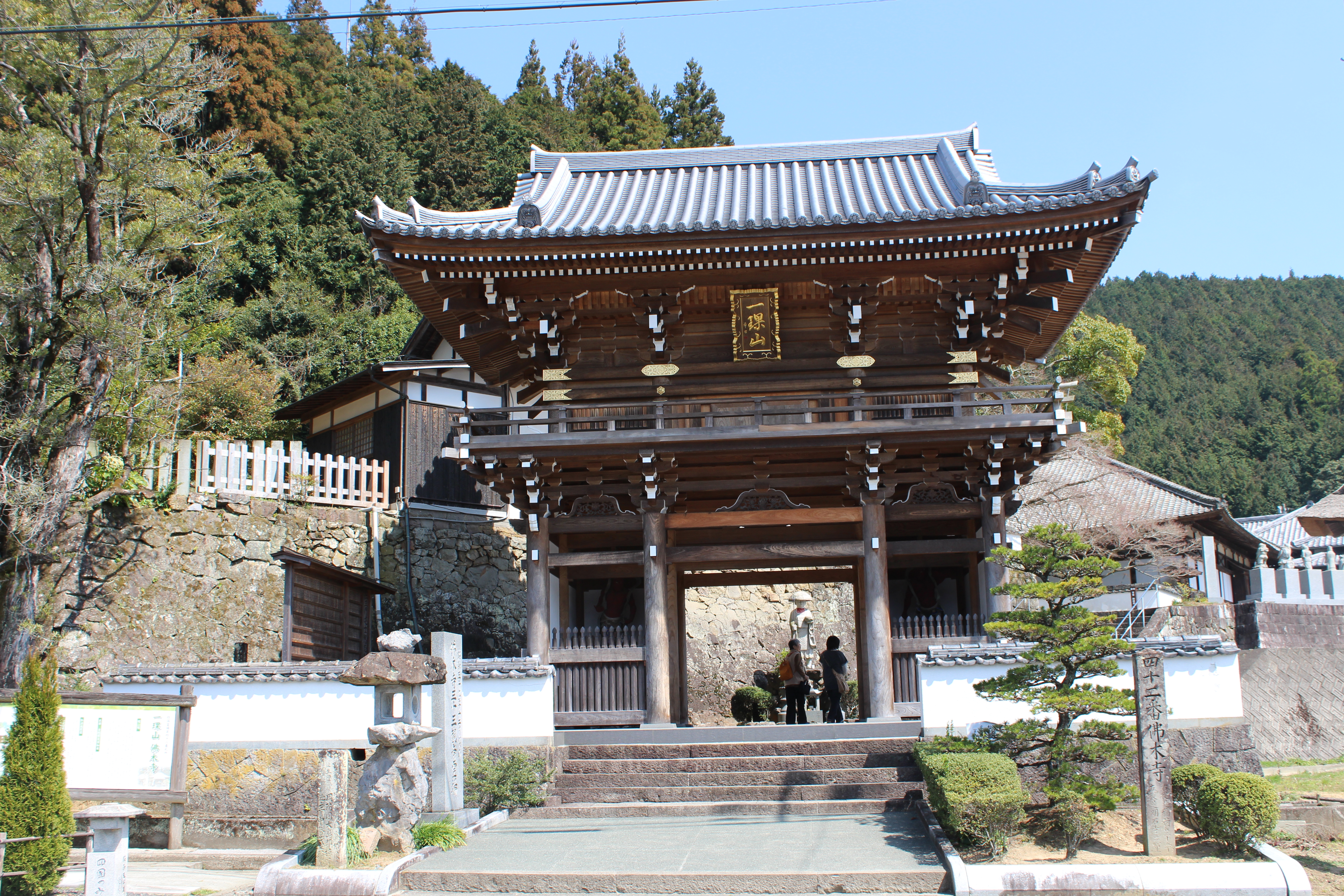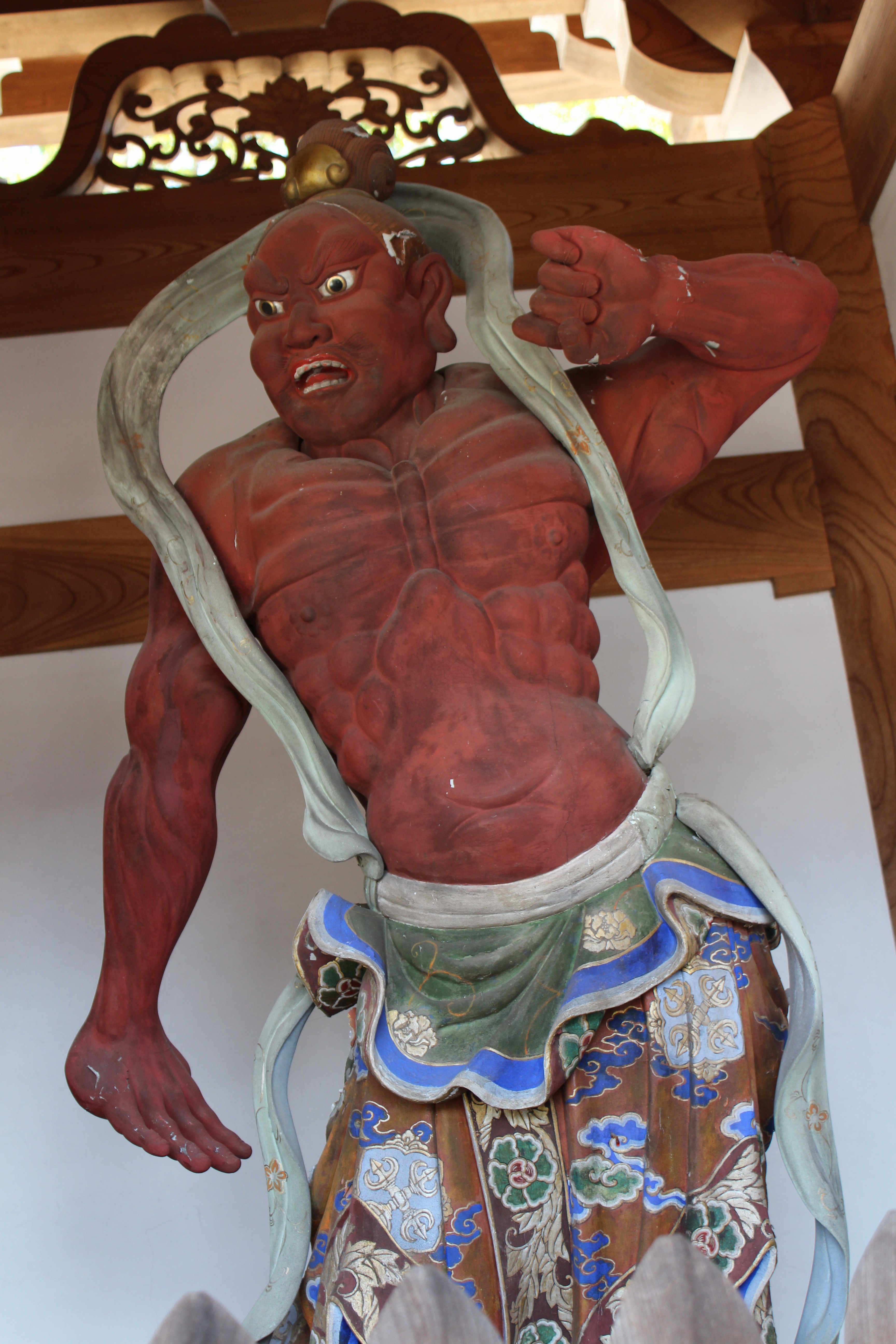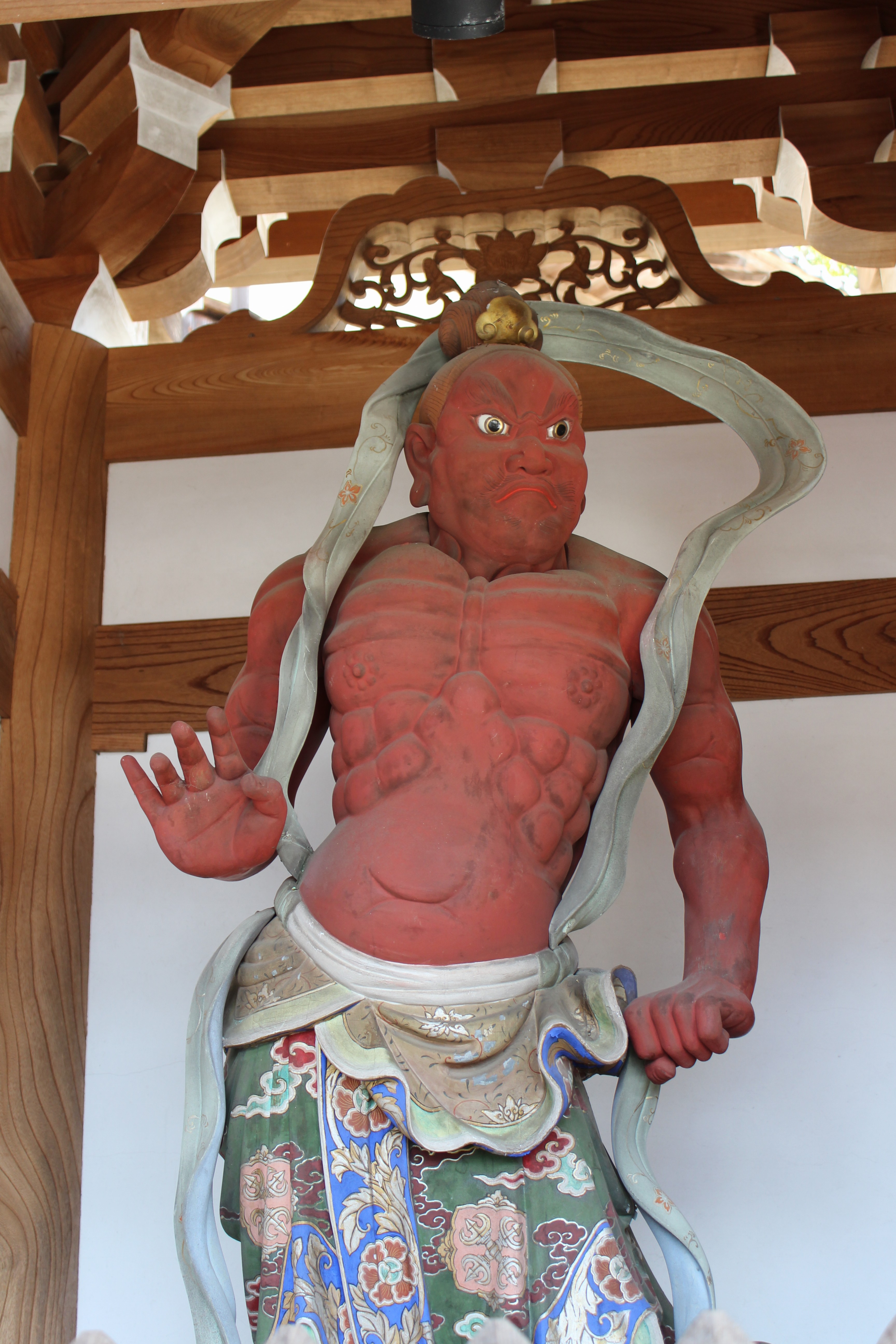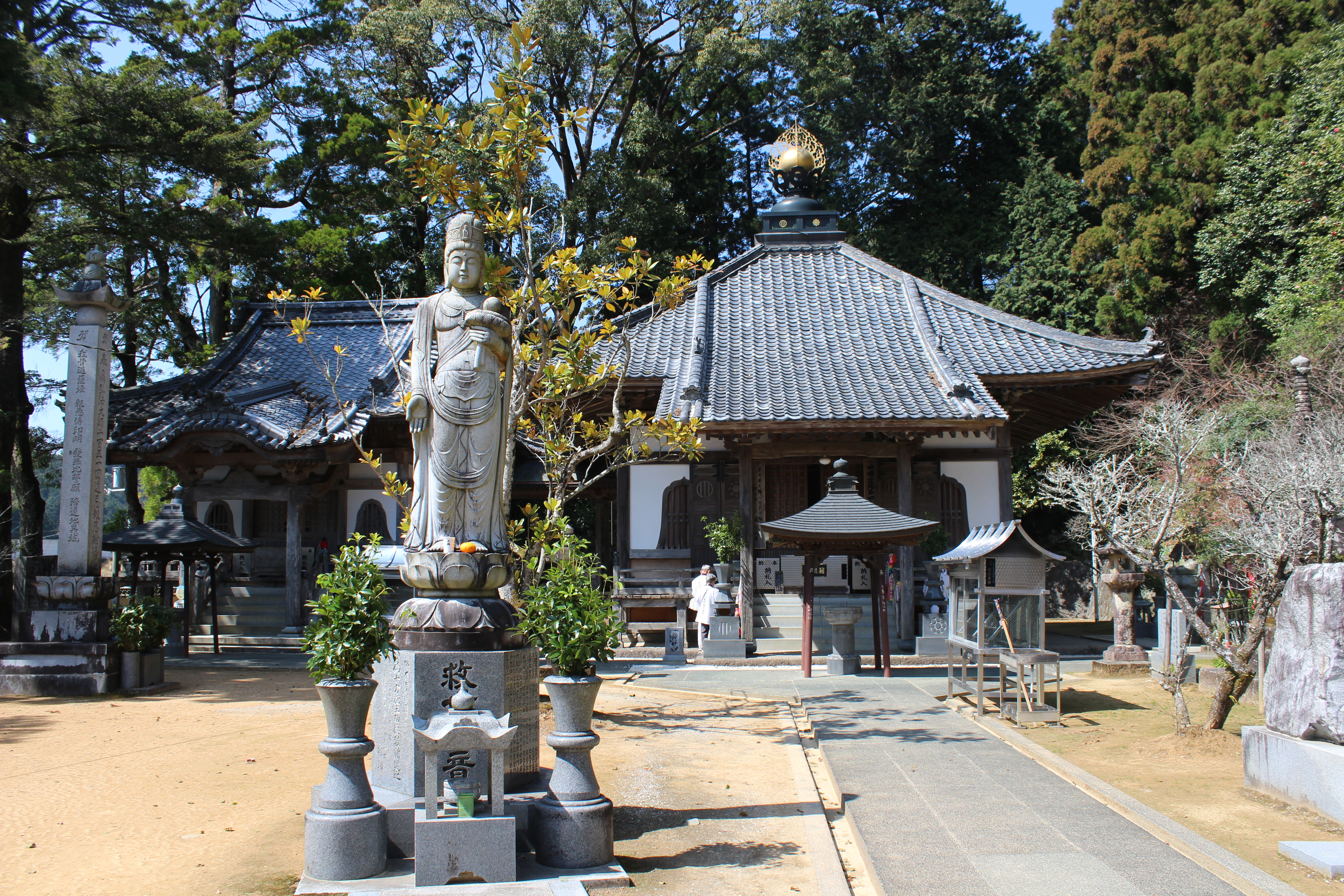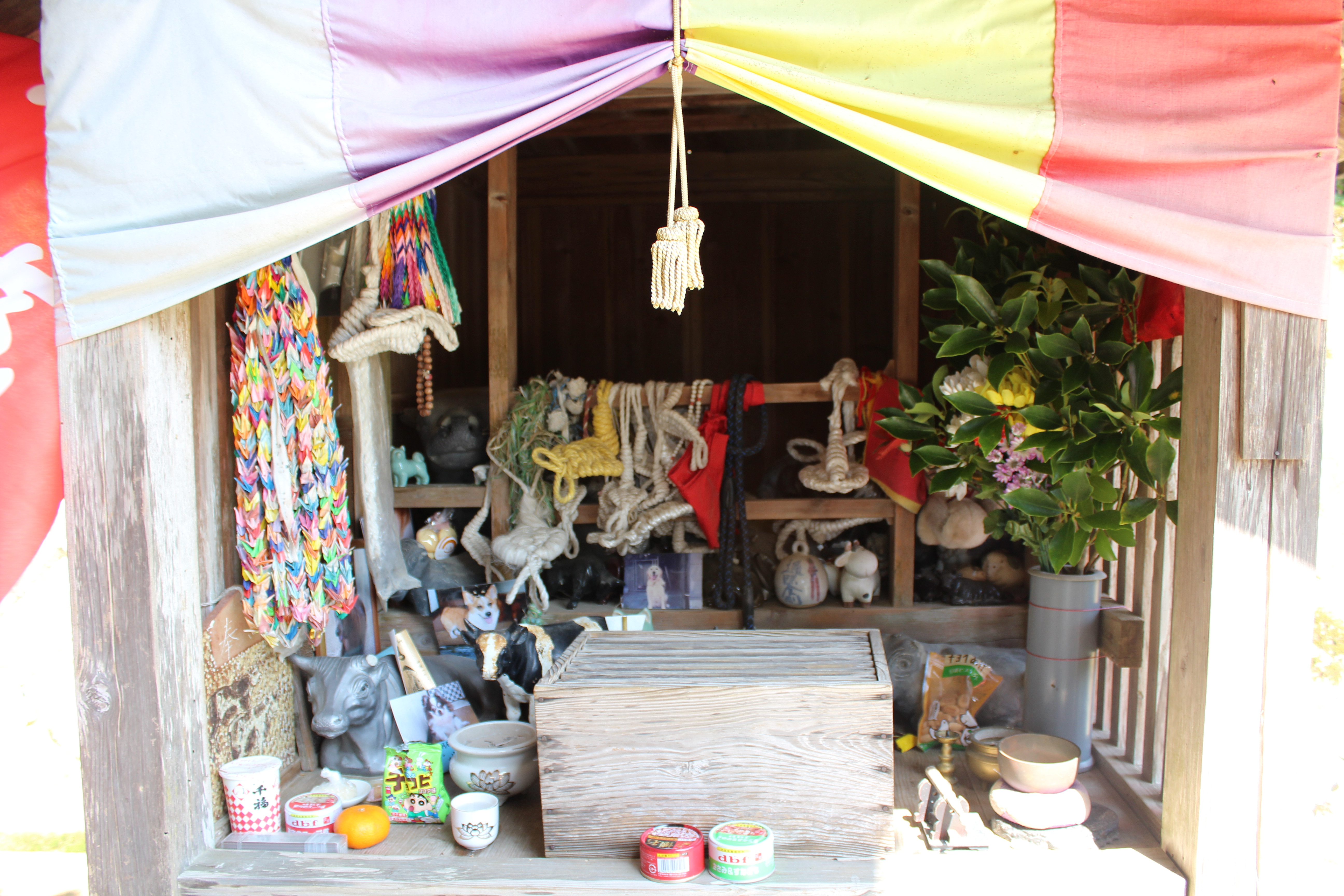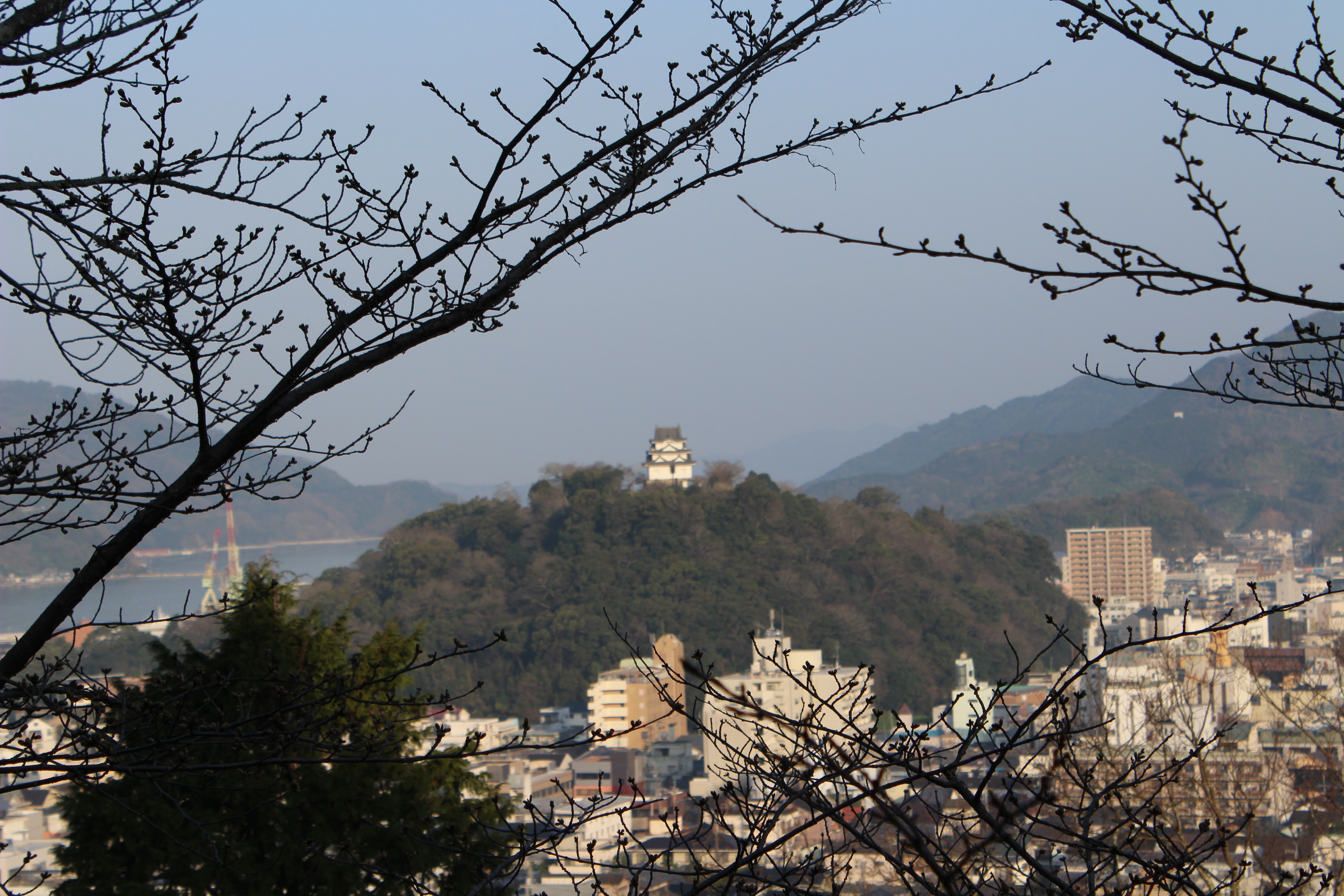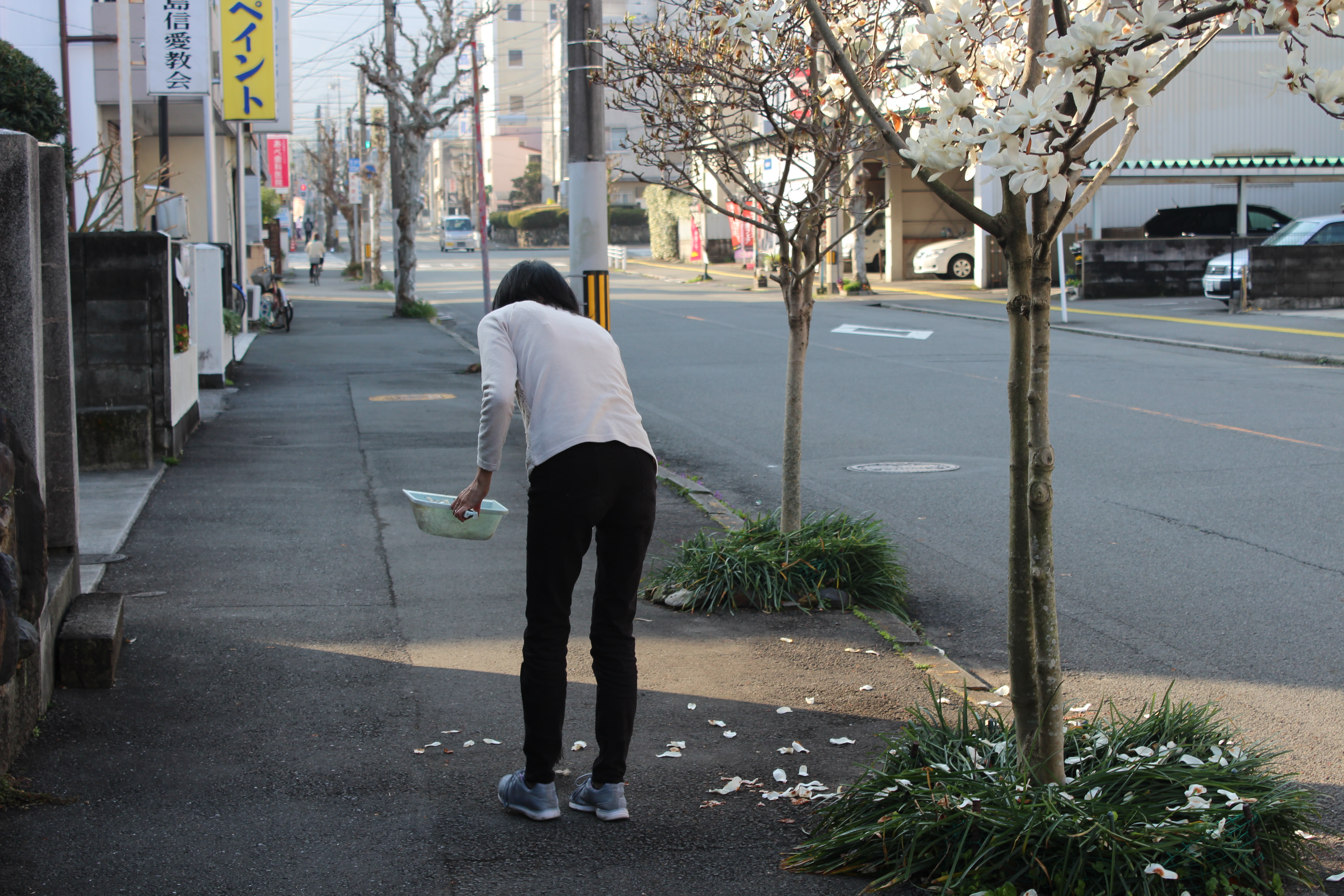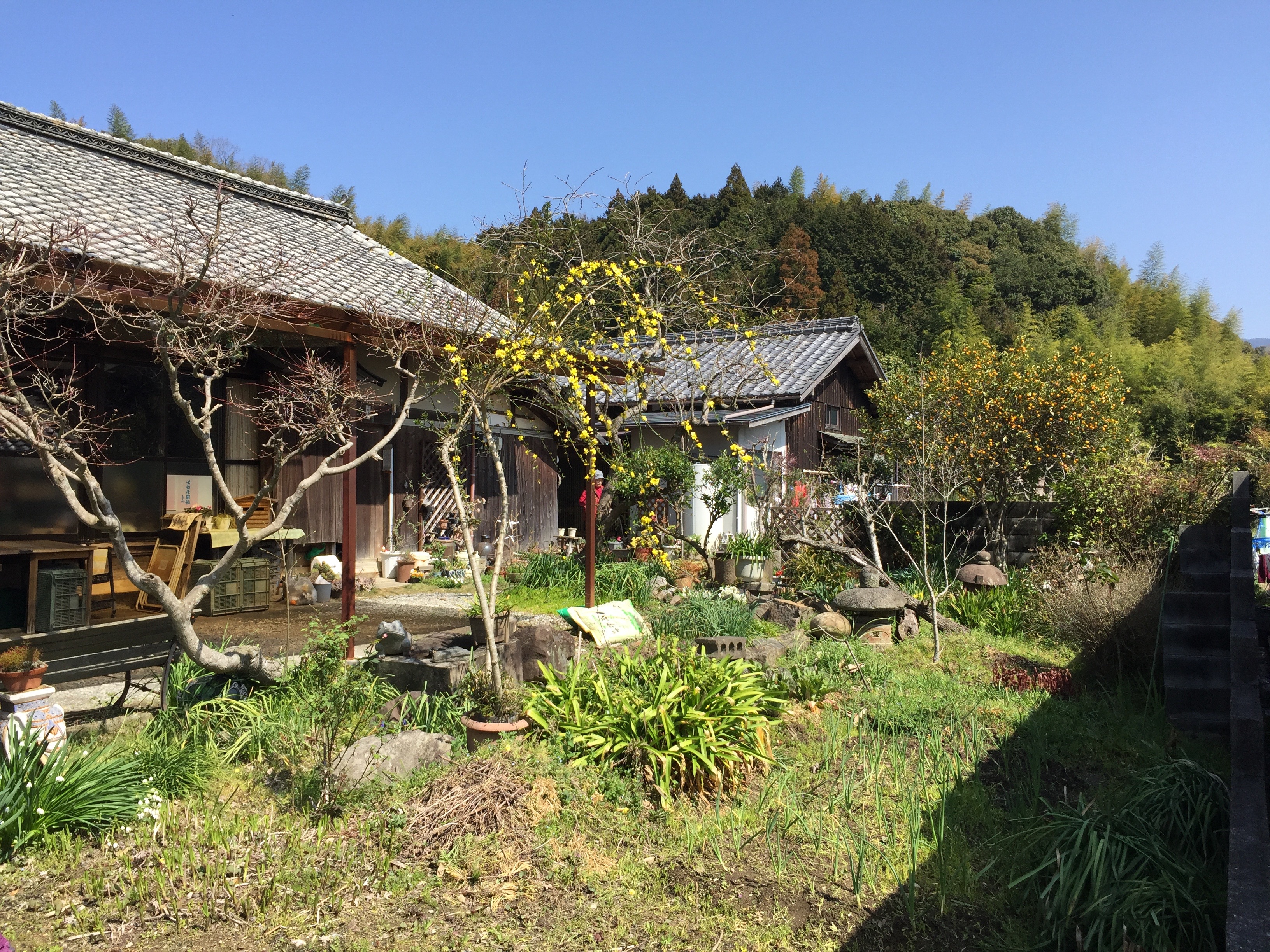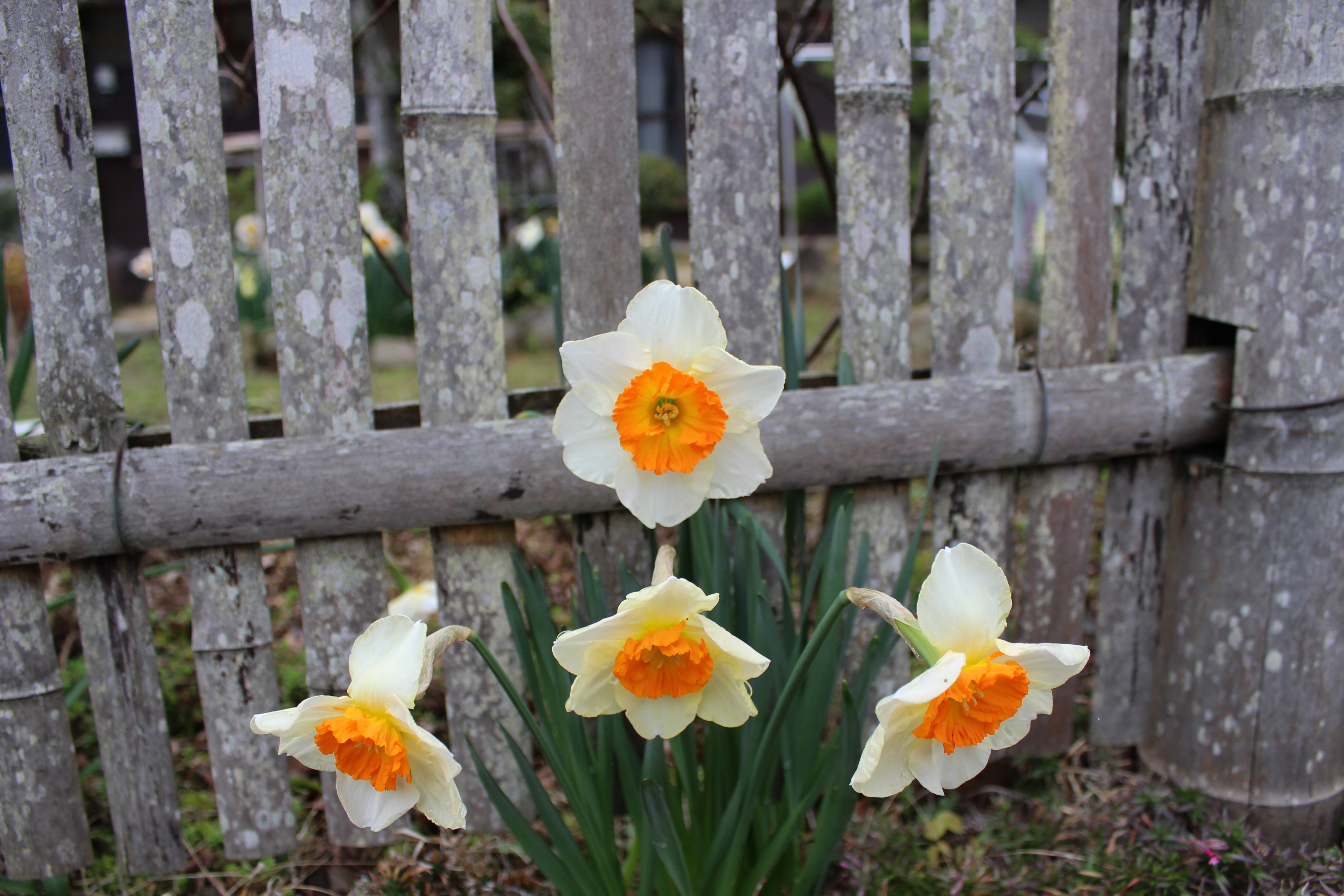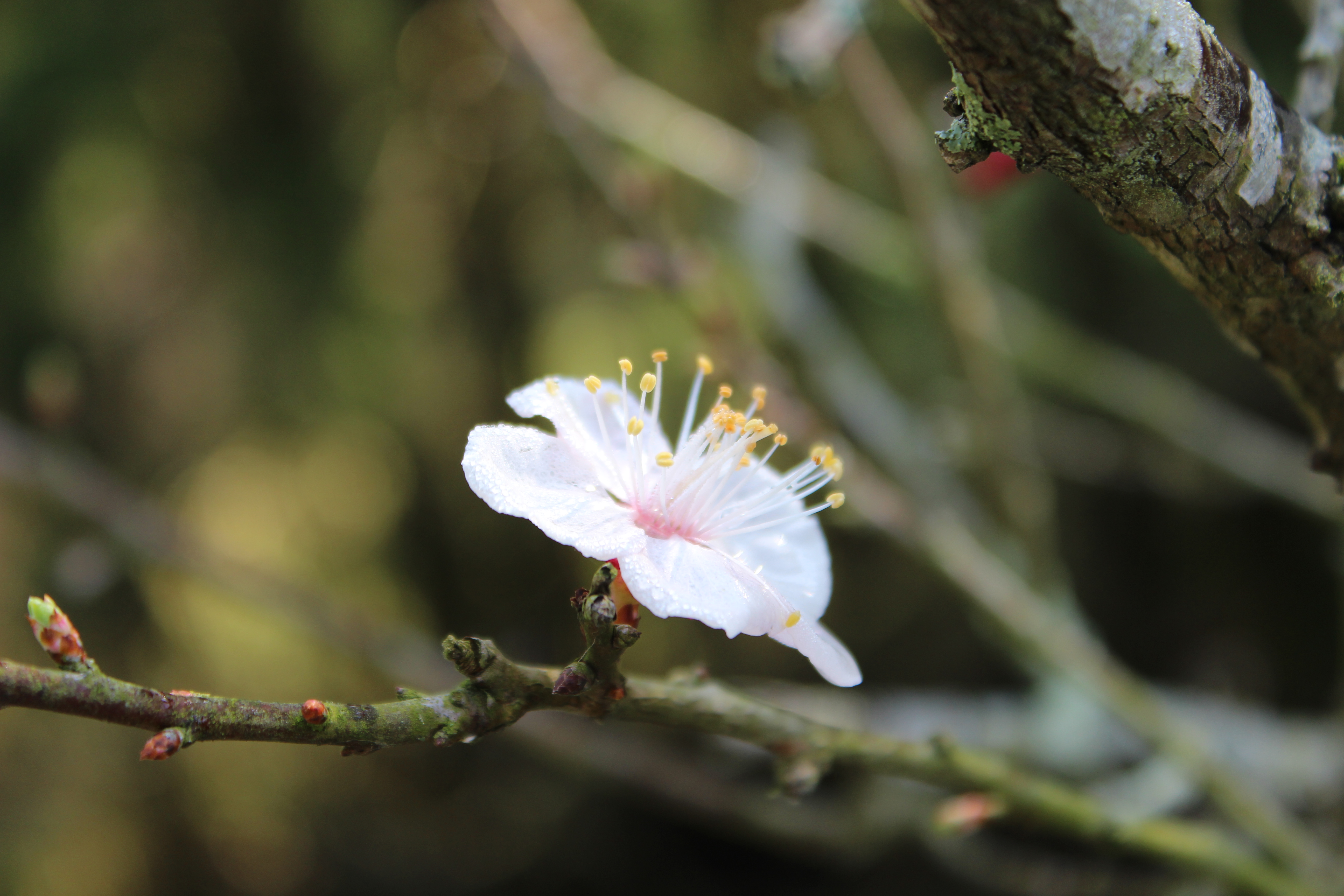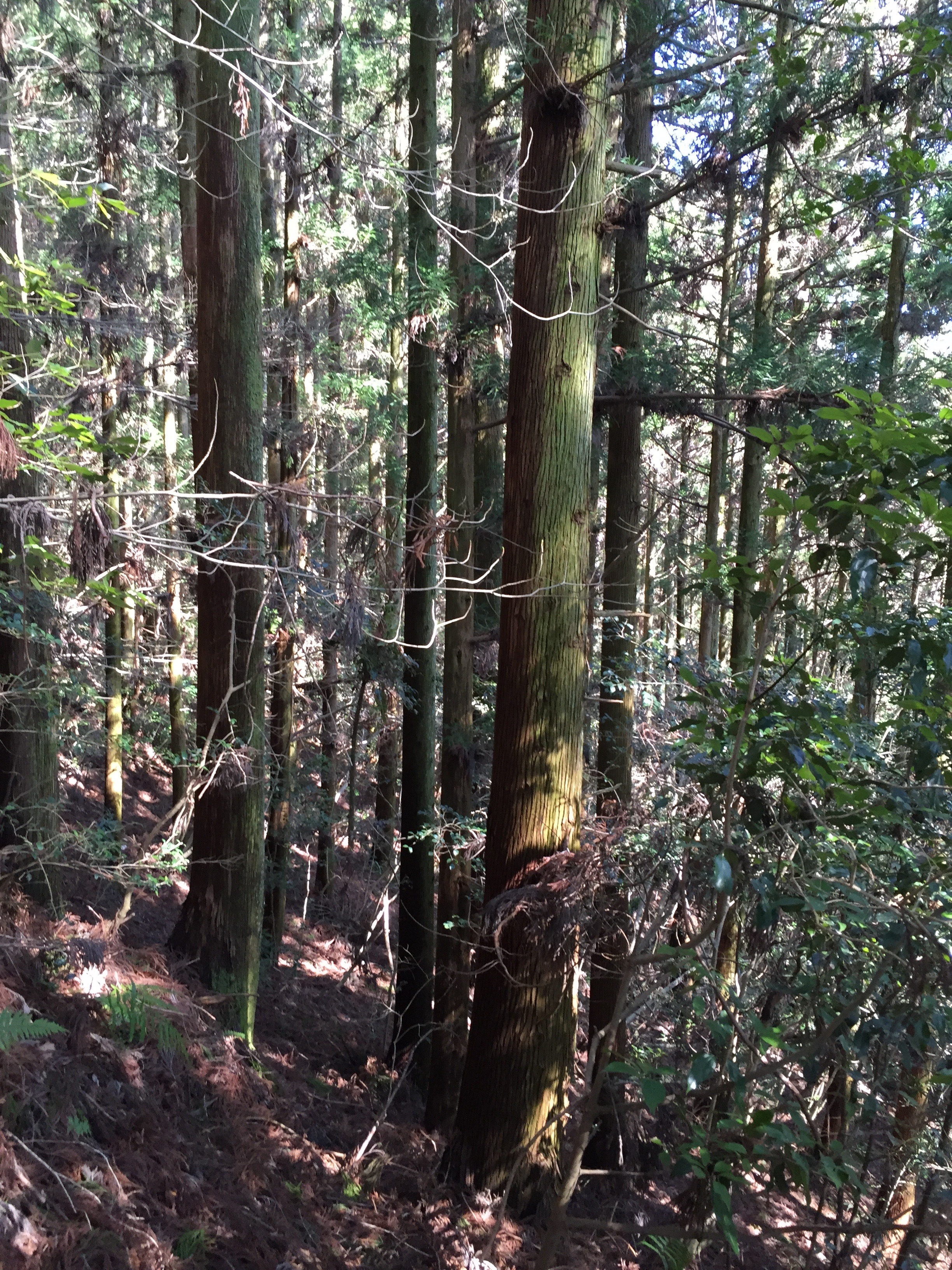A-gyō and Un-gyō, the guardians of Shigon temples (temples 41, 42)
In every temple gate of the Shingon sect, a pair of wrath-filled muscular guardians,
called Kongō-rikishi, are standing at the entrance to ward off evil and protect the
temple grounds. The statue on the right with an open mouth is called A-gyō, A-
figure, representing the vocalization of “a”. The left statue, called Un-gyō, Un-
figure, has a closed mouth and represents the sound “hum.” Both symbolize
birth and death, similar to Alpha and Omega in Christianity and signify “all creation”.
The Niōmon or entrance gate to Butsumokuji, temple 42
The statue of Kōbō Daishi welcoming every Ohenro stands in the background. The
statues of A-gyō and Un-gyō, two wrath-filled muscular guardians, are placed left
and right behind the wooden fence of the entrance gate. They are a manifestation
of the Bodhisvattva Vajrapāni and according to Japanese tradition, traveled with
Gautama Buddha to protect him.
A-gyō with open mouth
Un-gyō, symbolizing latent strength and power
The main hall of Butsumokuji with the statue of Kannon Bosatsu in the foreground.
The temple is also called the temple of Buddha’s tree. Nowadays, many people come
to cure illness and pray for dead pets.
Offerings
When I walked through the area, spring was popping up everywhere.
16th century castle on the hill of Uwajima City
Fallen blossoms of Magnolia trees swept by a lady in Uwajima City
The pedestrian walkways in Japanese Cities are kept incredible clean.
House in the countryside
My most favorite part of walking, however, was walking through cedar forests.
The bark of an old Cedar tree is always soft and silky. Often, the bark is covered by moss. Sometimes, I composed poems to express my feelings and thoughts.
Deeply rooted cedar trees
Are writing my childhood name
On the mountains of Shikoku –
Zederbauer
(my childhood name was Zederbauer, meaning cedar farmer)

